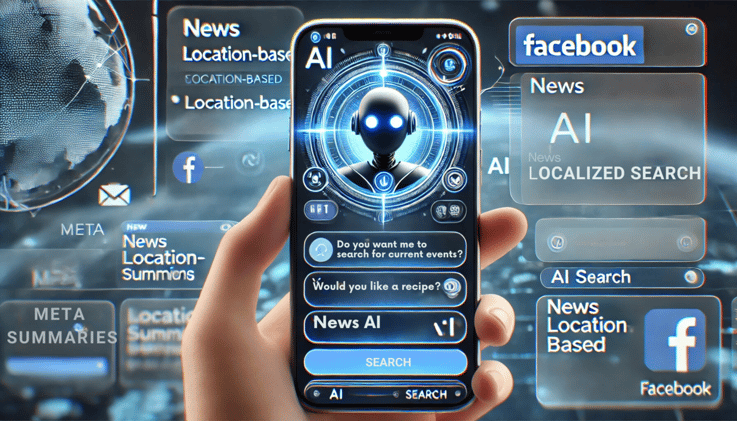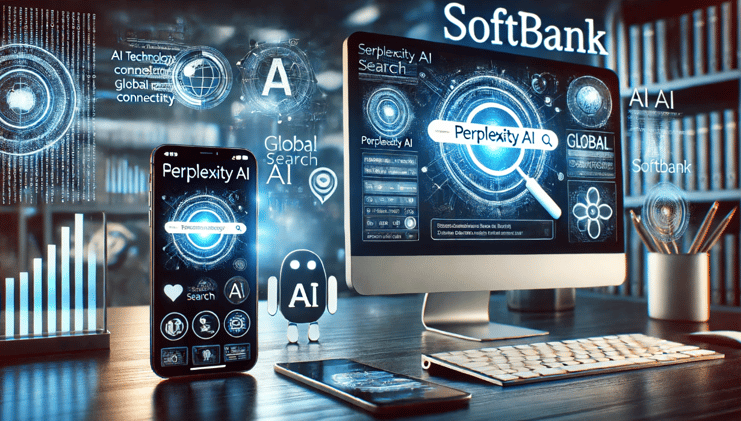In a move aimed at reducing its reliance on Google and Microsoft’s Bing for search functionalities, Meta is reportedly working on a proprietary AI-powered search engine. According to an October 28 report from The Information, Meta’s engineering team has been quietly building a search engine that uses artificial intelligence (AI) to generate summaries of current events and trending information, providing answers directly through Meta’s AI chatbot.
Leveraging AI for Search and Real-Time Summaries
Currently, Meta’s chatbot—which integrates with Instagram, Facebook, and WhatsApp—relies on Google and Bing to source answers to user questions on recent news. However, this could change as Meta’s web crawler has been spotted gathering data over the past few months. This dedicated crawler, along with an internal team working to compile a search database, may allow Meta’s AI to offer real-time, AI-generated summaries in response to user queries.
The planned search engine would allow users to receive up-to-date, conversational summaries on recent events within the Meta AI bot, helping it compete with offerings from Google and Microsoft. This development is part of a broader trend where tech giants are investing heavily in AI-powered search technology.
Incorporating AI-Generated News Summaries
The planned search engine would enable users to receive AI-generated summaries on recent events directly within the Meta AI bot, providing a streamlined user experience for current events and location-based searches. This feature is expected to be particularly useful for users who are actively seeking news and information on specific topics.
Building Location-Based Data
Meta’s search engine team has also been developing a location data database, which some speculate could eventually compete with mapping tools like Google Maps. While the exact scope of this project remains unclear, it is evident that Meta is investing in building a comprehensive database to support its AI-powered search capabilities.
A Growing Trend: AI Search Engines
Meta isn’t alone in developing AI-powered search technology. OpenAI recently introduced a prototype for its own search tool, SearchGPT, which is designed to enhance ChatGPT’s ability to answer real-time queries. Meanwhile, Apple has also taken steps toward its own AI-based search tool, particularly in the App Store, to further its independence from Google.
This movement among tech giants underscores the increasing importance of proprietary AI in search. As companies continue to invest in developing their own AI-powered search capabilities, it is likely that we will see a significant shift away from relying on traditional search engines like Google and Bing.
Meta’s Renewed Focus on News Content
In a recent move signaling a controlled reintroduction of news content, Meta announced a multi-year partnership with Reuters. This partnership allows its AI chatbot to draw from Reuters articles to enhance response accuracy, representing a shift from Meta’s previous stance of downplaying news and political content across its platforms.
Following recent controversies, Meta had deprioritized news in its feeds, but the new Reuters partnership suggests the company is open to revisiting news in a more curated format. This move is likely aimed at ensuring that users have access to high-quality, accurate information on current events, while also protecting against the spread of misinformation.
Legal Challenges Facing AI Search Engines
While the race to develop AI-powered search capabilities heats up, it also raises legal concerns. Perplexity’s AI search engine, for instance, is facing lawsuits from major publishers like News Corp and legal pressures from The New York Times due to its use of proprietary news content in its summaries.
Meta’s Reuters partnership could help it avoid similar issues by ensuring it has legal access to licensed news content. However, the landscape for AI-powered search remains complex, with potential challenges tied to data use, partnerships, and legal issues.
Looking Ahead
Meta’s push to develop an independent AI search engine marks a strategic shift that could impact its dependence on existing tech giants and expand the value of its social platforms. If successful, Meta’s AI search engine could introduce a streamlined, AI-focused user experience for current events and location-based searches.
However, it will be crucial to monitor how Meta navigates these challenges as it advances its AI search capabilities. As the development of AI-powered search continues, we can expect to see significant changes in the way users interact with information online, and it is essential that companies prioritize transparency, accuracy, and user experience in their pursuit of innovation.
Benefits of AI-Powered Search Engines
AI-powered search engines have several benefits over traditional search engines:
- Improved Accuracy: AI algorithms can provide more accurate results by analyzing vast amounts of data and identifying patterns.
- Personalization: AI-powered search engines can offer personalized recommendations based on user behavior and preferences.
- Real-Time Updates: AI can enable real-time updates, ensuring that users have access to the most current information.
Challenges Facing AI-Powered Search Engines
While AI-powered search engines have significant potential, there are several challenges that companies must address:
- Data Quality: Ensuring the accuracy and reliability of data is critical for AI-powered search engines.
- Partnerships: Building partnerships with news organizations and other content providers can be complex and time-consuming.
- Legal Issues: Companies must navigate a complex landscape of laws and regulations regarding data use, partnerships, and intellectual property.
Conclusion
Meta’s push to develop an independent AI search engine marks a significant shift in the way users interact with information online. As companies continue to invest in developing their own AI-powered search capabilities, it is essential that they prioritize transparency, accuracy, and user experience.
While there are several challenges facing AI-powered search engines, the benefits of improved accuracy, personalization, and real-time updates make them an attractive option for users. By addressing these challenges and ensuring that AI-powered search engines are developed responsibly, we can unlock their full potential and create a more informative and engaging online experience.



